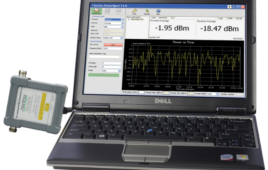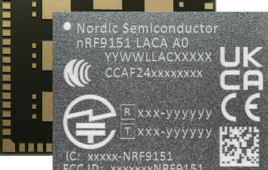ETH-physicists ‘beam’ information.
ETH-researchers cannot “beam” objects or humans of flesh and blood through space yet, a feat sometimes alluded to in science fiction movies. They managed, however, to teleport information from A to B – for the first time in an electronic circuit, similar to a computer chip.
Physicists at ETH Zurich have for the first time successfully teleported information in a so-called solid state system. The researchers did it by using a device similar to a conventional computer chip. The essential difference to a usual computer chip is that the information is not stored and processed based on the laws of classical physics, but on those of quantum physics.
In a study, which is published in the current issue of the scientific journal Nature, the researchers were able to teleport information across a distance of about six millimeters, from one corner of a chip to the opposite one. This was shown to be possible without transporting the physical object carrying the information itself from the sender’s to the receiver’s corner.
“Usually, in telecommunication information is transmitted by electromagnetic pulses. In mobile communications, for example, microwave pulses are used, while in fiber connections it is optical pulses,” explains Andreas Wallraff, Professor at the Department of Physics and head of the study. In contrast, quantum teleportation does not transport the information carrier itself, but only the information. This is possible due to the quantum mechanical properties of the system, in particular the entanglement established between the sender and the receiver. For non-physicists, entanglement constitutes a “magic” link between the two parties which exploits the laws of quantum physics.
“Like Beaming”
As a prerequisite for quantum teleportation, an entangled state is created between the sender and the receiver. After that the two parties can be physically separated from each other while preserving their shared entangled state. In the present experiment the physicists program a bit of quantum information into their device at the sender.
Because the two parties are entangled, this information can be read out at the receiver. “Quantum teleportation is comparable to beaming as shown in the science fiction series Star Trek,” says Wallraff. “The information does not travel from point A to point B. Instead, it appears at point B and disappears at point A, when read out at point B.”
High Data Rates
The distance of six millimeters over which the ETH Zurich-researchers have teleported seems to be short in comparison with other teleportation experiments. A year ago, for example, Austrian scientists managed to teleport information by more than one hundred kilometers between the Canary Islands of La Palma and Tenerife.
That and other similar experiments, however, were fundamentally different from the one performed at ETH Zurich, because they use visible light in an optical system for teleportation. The ETH-researchers, however, managed to teleport information for the first time in a system which consists of superconducting electronic circuits. “This is interesting, because such circuits are an important element for the construction of future quantum computers,” says Wallraff.
Another advantage of the system of the ETH-scientists: It is extremely fast and much faster than most previous teleportation systems. In this system approximately 10,000 quantum bits can be teleported per second. A quantum bit is a unit of quantum information.
“Key Future Technology”
In a next step, the researchers plan to increase the distance between sender and receiver in their device. The scientists say, they will try to teleport information from one chip to another. And in the long term the goal will be to explore whether quantum communication can be realised over longer distances with electronic circuits, more comparable to those achieved today with optical systems.
“Teleportation is an important future technology in the field of quantum information processing,” says Wallraff. For example, it may be possible to transmit information from one location to another one in a future quantum device or processor.
Compared to today’s information and communication technologies, which are based on classical physics, quantum information processing has the advantage that the information density is much higher: In quantum bits more information can be stored and more efficiently processed than in classical bits.
For more information visit http://www.ethz.ch/index_EN




